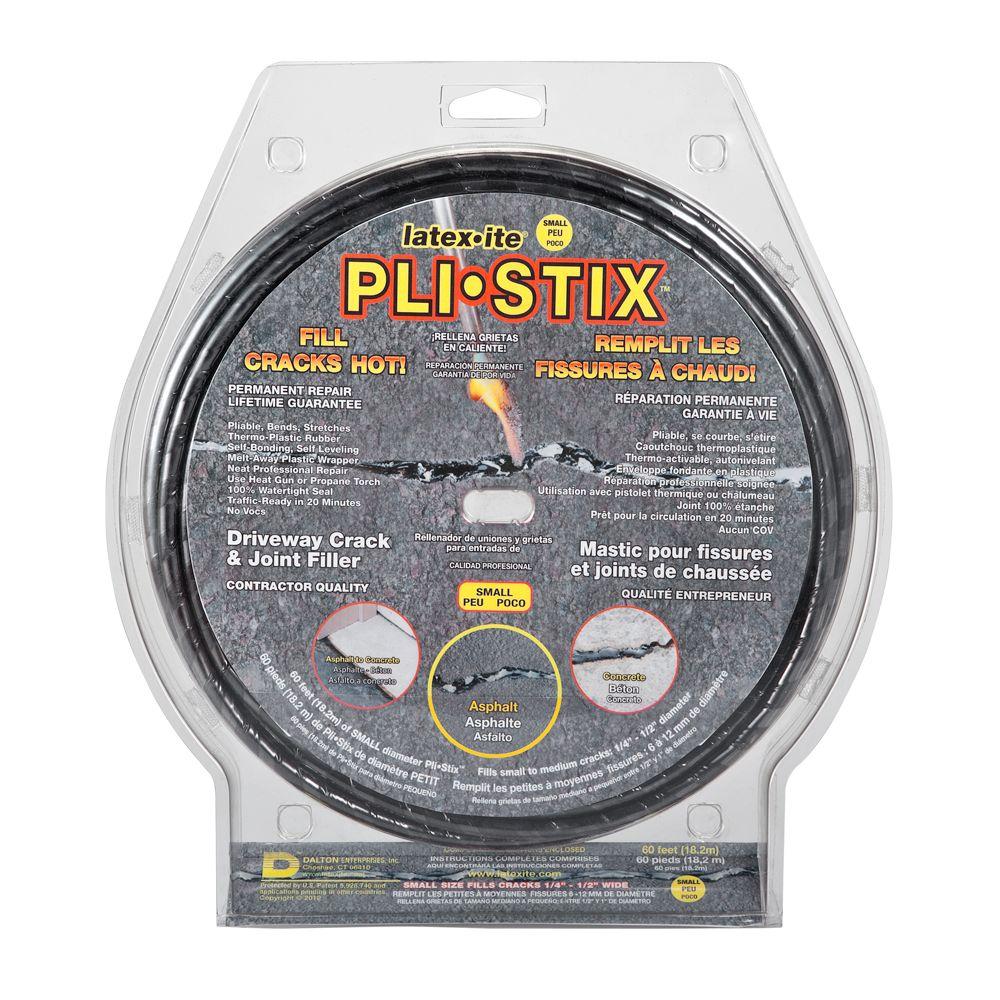DIY Driveway Repair: Fix Driveway Cracks. In cold climates, water seeps in and destroys the asphalt when it expands during freezing. If you plan to topcoat your driveway, you'll need to fix the cracked driveway first and do asphalt repair later. You can buy squeeze bottle and caulk tube–style crack filler products from any home center. Asphalt cracks have a number of causes, but they all boil down to stress. This can be a result of excessive wear, tree roots, poor initial installation, and many other reasons. What's important is not what caused them, but rather which products allow you to easily fix them. Luckily, we have the answer you are looking for.
Consumer Reports tested seven brands of blacktop patch, but none match the strength of hot asphalt
Not all the asphalt cracks and potholes in your driveway need the skills of a pro, especially when you can have your pick of blacktop patch products that are designed for those very small jobs. What’s more, these driveway repair products typically cost a fraction of the price of professionally applied hot asphalt. Consumer Reports tested seven different brands of blacktop patch and found significant differences.

Do-it-yourself blacktop patch, like hot asphalt, consists of small stones (aggregate) coated with a binder. Where it differs from the professionally applied stuff is that you pour it into a hole from a bag or bucket and then compact it—any time of the year. You can do this driveway repair using a tamping tool or any heavy object with a flat bottom, such as the end of a 4x4 post. You can also run back and forth over the spot with your car.
What We Tested

• Aquaphalt Permanent Pothole Repair (55-lb.), $42.99
• EZ Street Asphalt Premium Cold Asphalt (50-lb.), $16.56
• Perma-Patch Permanent Pavement Repair Patch (60-lb.), $33.06
• QPR High Performance Permanent Pavement Repair (50-lb.), $11.88
• Quikrete High Performance Blacktop Repair No. 1701 (50-lb.), $12.29
• Sakrete All Weather Blacktop Patch (60-lb.), $13.49
• Sakrete U.S. Cold Patch Permanent Pothole Repair (50-lb.), $12.55

One driveway repair product we tested, the Aquaphalt Permanent Pothole Repair, requires that you wet its binder (to activate the adhesive) before compaction. This product is the only one among those we tested that comes in a choice of different aggregate sizes (four between 4 and 12 mm). The smaller sizes are best for smooth surfaces or smaller holes; the larger, for wider, deeper holes or base layers. We tested the 6 mm, a roughly average size.
How We Tested
How To Patch Asphalt Driveway
Over the past few months, we created potholes on a stretch of pavement at our Yonkers, New York, headquarters using a series of square wooden forms. Following the instructions for each blacktop patch, we filled the forms with the seven products. We then drove over them every day, let them weather for a week, and then tested them for resistance to shear—how well they withstood the wheel of a stationary car spinning over the patch, as it would if skidding. We also tested for resistance to penetration using a rounded probe, trying to simulate a point load such as a caster or the foot of a chair. We did this twice, a month apart, to check whether longer weathering improved durability. One check we were unable to make, given the season, was resistance to freezing and thawing.
How They Performed
The Aquaphalt, which costs about three times more than the others, was the best performer. It’s easy to use and the top choice of all the materials if your repair involves an edge or having the material built up into a curb. The choice of four different aggregate sizes also lets you choose the best size for your particular driveway repair. Aquaphalt was the most resistant to shear, with just surface discoloration as its coating was removed beneath the car’s turning tire, and it best resisted penetration from a probe.
Next best was the Sakrete Cold Patch, which was also easy to use, though it was a little less resistant to shear and penetration. It wasn’t as good as the Aquaphalt at edge strength or for use in a built-up curb, but it was far superior to the other five driveway repair products in those applications.
The others were much less resistant to deformation under shear and to penetration. We suggest you consider them only if the material will be used on a part of the driveway that's just driven over and not in a section where you routinely turn your car around.
Bottom Line
Home Depot
None of these tested materials was as strong as hot asphalt, a truly permanent driveway repair that requires a paving company and which might be a better long-term choice. Still, if you’d like to do some repairs before replacing a driveway altogether, these materials could prolong its life.